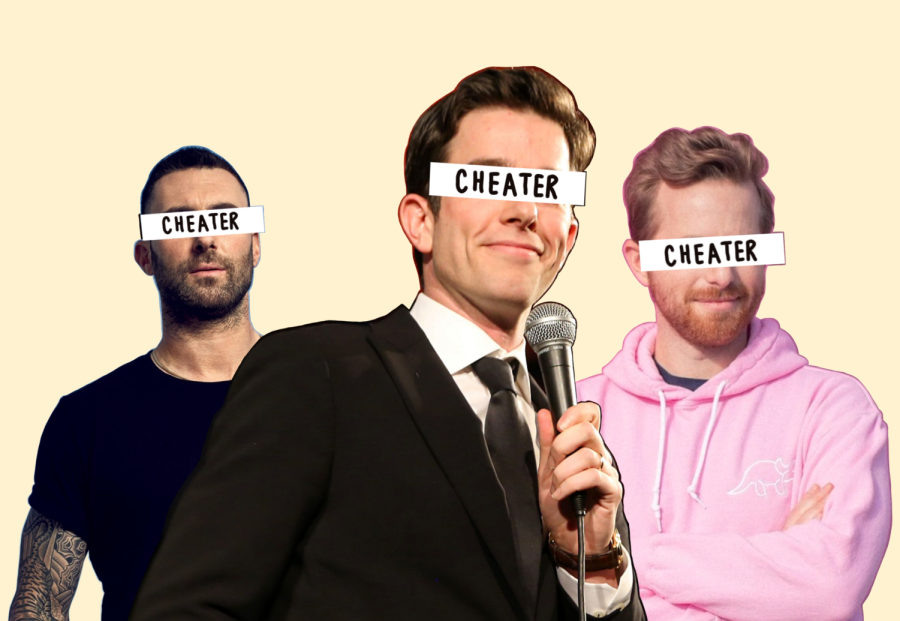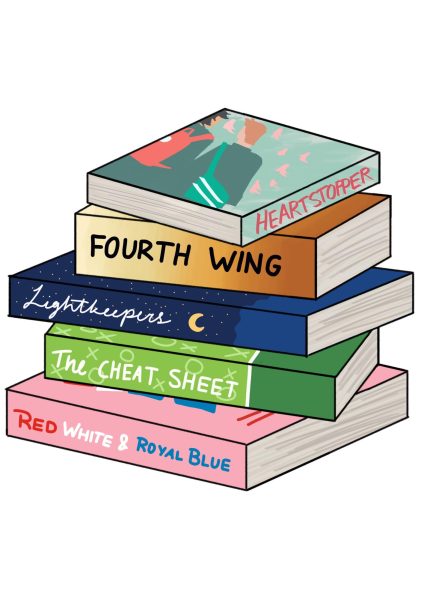The dark truth of celebrities behind the screen
None of your favorite content creators are your friends. They do not care about you as much as you may care about them, and although this is a harsh reality, it needs to be accepted. Though you may think you know them due to what creators choose to share with you, it is undeniably a one sided relationship, or a parasocial relationship. A parasocial relationship is when one person extends emotional energy, and the other party is completely unaware of the existence of these “relationships.”
This illusion of a relationship with celebrities has been taken to new levels, as social media platforms have provided constant access to content about favorite pop stars and movie stars. Many people scroll through celebrities’ “personal” social media feeds, making it easy to get overly invested in their idols’ personal lives. For better or worse, celebrities have a powerful impact on how teens view themselves.
Comedian John Mulany was arguably one of the most popular comedians, whose relatable, down-to-earth jokes won over audiences across the nation. Mulaney often publicly spoke of his personal life, mentioning stories between him and his now divorced wife, Anna Marie Tendler. The couple was publicized for being cute, funny, and again – relatable. It was this relatability that allowed Mulany’s fandom to personally connect with him and condemn him when he and Tendler divorced, and he got with his current girlfriend, Olivia Munn. In 2021, Mulaney’s fans met him all over again. In early 2020, fans thought that they knew who Mulany was: a sober, normal, happily married man who happens to be funny. However, that picture was damaged when he checked into rehab in December, divorced his wife in May, started to date Munn by mid-May, and had a child by August, despite Mulaney specifying that he did not want children when he was with his ex-wife. Mulaney’s fans turned on him, expressing their disappointment and anger at his behavior.
In a similar but more recent scandal, former Try Guy Ned Fulmer made national headlines when he was caught engaging in a relationship with his colleague as a married man with children. The cheating scandal is nothing short of ironic, as his online persona as a “wife guy” during his years of being a Try Guy was what made it so shocking to the public. Fans cited that they were shocked and betrayed that the self described “family man” would cheat on his wife, especially since he would iconically mention his wife in every Try Guy video, essentially building his brand and public image on how much he loves his wife.
In both of these scenarios, with so-called “wife guys,” fans cried that love was dead. He just loved his wife so much, how could he do this to her? How could he do this to us? The parasocial relationship element arises in both these scandals because many of their viewers believed they had known Fulmer or Mulaney personally for years, and were genuinely heartbroken at how they behaved in their private lifes. In the middle of all this drama, it is important to consider the fact that most of these fans probably are not personally acquainted with these celebrities. As complete strangers, they are not familiar with the relationship that Mulaney and his wife had behind closed doors, nor do they have the authority to give relationship advice to Fulmer and his wife Ariel. The lines of fandom and reality are blurred when fans irrationally feel deceived or personally offended by the actions of a stranger.
Despite everything, celebrities are still a normal part of adolescent identity. Just about everyone has a celebrity crush as a teen; it is a way to safely experience having platonic, romantic or even sexual feelings for someone, without dealing with the negatives of a real relationship. But when being a fan crosses a certain point, it can be an indicator of a toxic parasocial issue.













